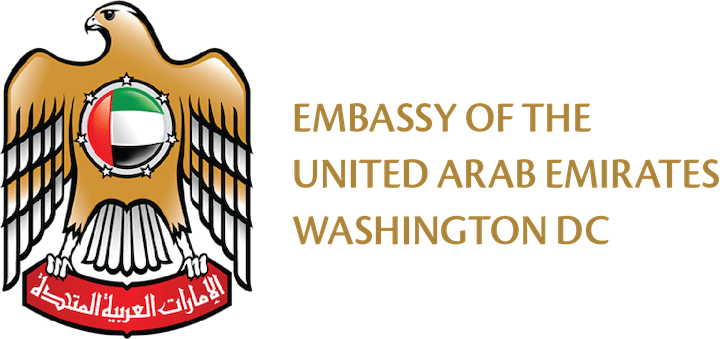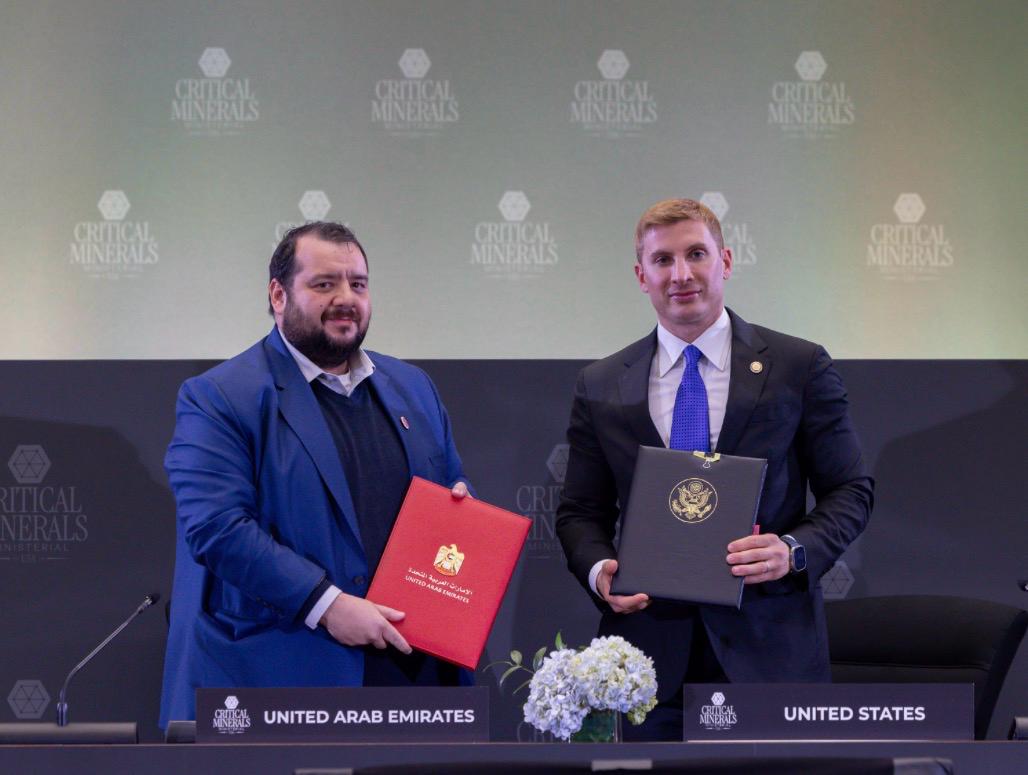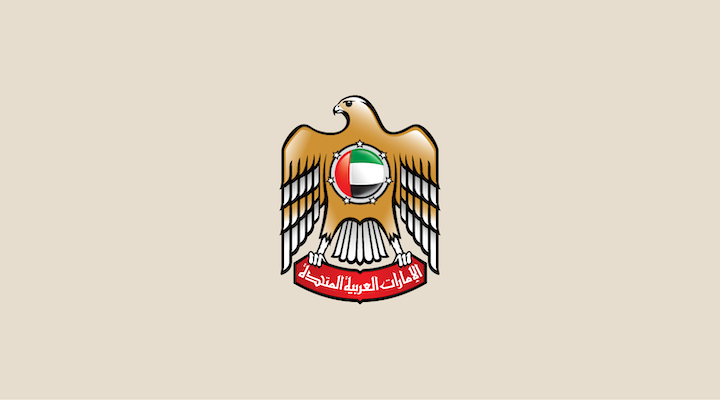UAE Delegation Explores Economic Opportunities of Energy Transition with the US
May 10, 2022
UAE-US deepen partnership on climate action and energy transition
As UAE Looks Ahead to Hosting COP28 in 2023
WASHINGTON, DC (May 10, 2022) – Today, His Excellency Dr. Sultan Ahmed Al Jaber, the UAE Minister of Industry & Advanced Technology and Special Envoy for Climate Change, began a visit to the United States to accelerate joint initiatives on the economic growth opportunities of the energy transition, outline UAE investment initiatives to increase production capacity, particularly of lower-carbon energy and advance climate cooperation.
In meetings with senior Biden Administration officials, including U.S. Special Presidential Envoy for Climate John Kerry and U.S. Secretary of Energy Jennifer Granholm, Dr. Al Jaber will reinforce the UAE’s close bilateral partnership with the United States on a range of economic, energy, and climate priorities.
“Strengthened by decades of close security, economic and energy cooperation, the UAE-US partnership on climate action and the energy transition is now a significant facet of our overall relationship,” said H.E. Dr. Al Jaber. “With the world facing multiple challenges, the UAE will remain a responsible and reliable supplier of energy to world markets. Today, this means producing not only more energy but also cleaner energy to drive economic growth and de-carbonization. The UAE seeks to deepen cooperation across a range of initiatives with the US to maximize the multiple economic opportunities of the energy transition.”
During his visit to Washington, H.E. Dr. Al Jaber together with a delegation of senior Emirati officials will also meet with climate and environmental organizations, business leaders, and market analysts. Dr. Al Jaber will also deliver remarks to the Atlantic Council’s International Advisory Board.
“As we mobilize investments for a net-zero economy, recent events have reminded us that we cannot simply switch off the current energy system. The energy transition will require sober, thoughtful planning,” said Dr. Al Jaber. “Industry, civil society, and financial institutions must partner on the solutions that will deliver simultaneously on energy security, job creation, and the Paris Agreement. The UAE was the first country in the region to announce a Net Zero by 2050 Strategic Initiative, and we are committed to driving global climate action.”
“We are calling this a strategic initiative, because it is not simply a goal. It is a vehicle for economic growth, job creation and industrial expansion that enables the UAE’s long term development plans. And we are eager to attract and grow partnerships between US and UAE companies on the many opportunities this development pathway presents.”
Early investment in diversifying its energy mix has put the UAE on the map as a major player in clean energy, from renewables to nuclear. The UAE is now moving into hydrogen, and developing the hydrogen value chain with key markets in Asia, Europe and the Middle East. In addition, the country is pioneering low-carbon technologies in other industries, from manufacturing aluminum using solar power to innovative agri-tech startups. All these sectors offer investment opportunities for our US partners, in addition to other priority industrial sectors, including plastics, metals, manufacturing, healthcare and biotech.
Elaborating on the current state of energy markets, Dr Al Jaber said, “The current volatility in energy prices has made it crystal clear that traditional energy supplies cannot be replaced at the flip of a switch. Well before the current geopolitical situation, even the most ambitious energy transition pathway called for sustained and substantial investment in oil and gas to keep the global economy running. Given this reality, it is critical that the lowest-carbon barrels continue to be supplied to the market. The UAE produces some of the lowest carbon oil in the world, and our investments in efficiency, renewables, and carbon capture are lowering our footprint further. And in an industry first, from the beginning of 2022 the Abu Dhabi National Oil Company takes 100 per cent of its grid power from clean energy sources. As we lower our operational footprint, we are on track to move up to 5mbpd production capacity by or before 2030 and we are exploring the feasibility of pushing that higher to meet growing global demand for lower-carbon oil.”
The UAE was the first country in the GCC region to sign and ratify the Paris agreement and the first to commit to an economy-wide reduction in emissions. In 2023, the UAE will also host the United Nations Climate Change Conference (COP28), the year’s largest climate event, welcoming tens of thousands of delegates from the United States and the global community to Abu Dhabi. The UAE presidency will focus on implementation of pledges through practical investments and policies sourced from a broad and inclusive coalition of all economic sectors, civil society, youth organizations, governments, scientists, academics, and other stakeholders.
The UAE welcomed Secretary Kerry to Abu Dhabi on several occasions in 2021 for discussions on increasing bilateral collaboration on combating climate change, raising global climate ambition, and working to accelerate economic growth and sustainable development.
Underlining the close climate relationship between the UAE and United States, Secretary Kerry participated in the first Regional Climate Dialogue in Abu Dhabi last April. He also joined Dr. Al Jaber on a tour of the UAE’s major strategic projects in clean energy, including the world’s largest single-site solar project, Noor Abu Dhabi, and MASDAR, a critical contributor to the UAE’s renewable energy portfolio, with investments in 10 US solar and wind projects in Nebraska, Texas, California, and New Mexico. Shortly after that visit, the United States and the UAE co-launched the Agriculture Innovation Mission for Climate (AIM for Climate) initiative during the White House Leaders’ Summit on Climate, to accelerate transformative innovation in the agricultural sector to help address the climate crisis and global food insecurity.
In New York, Dr. Al Jaber and his delegation will continue meetings with key U.S. and global business leaders, climate organizations, and entrepreneurs.
For more information on the UAE-US climate and energy cooperation, please visit www.uae-embassy.org/uae-us-cooperation/climate-energy.
###






